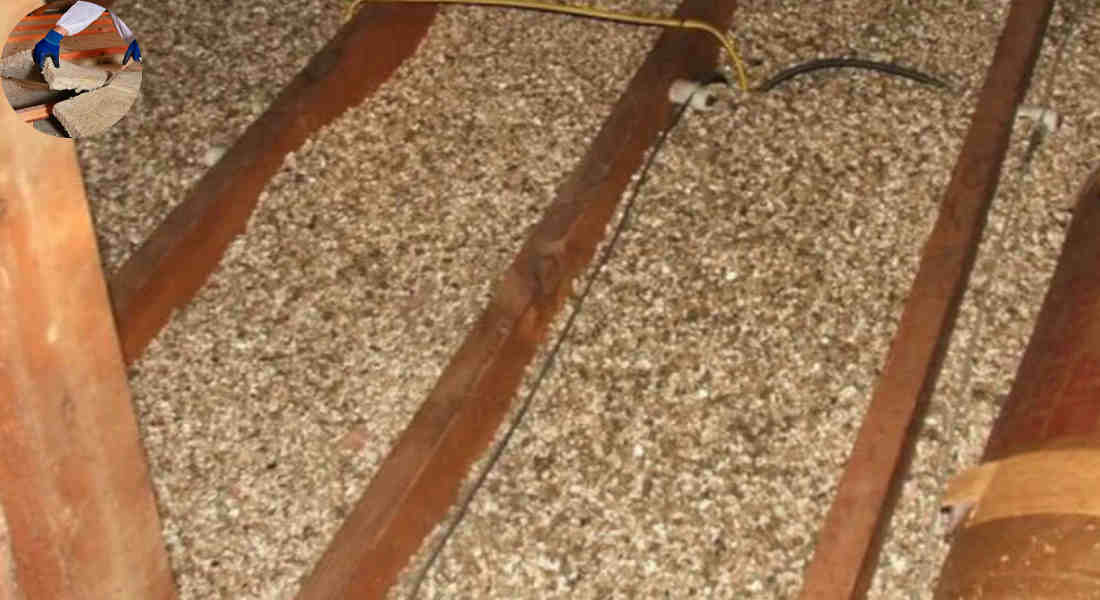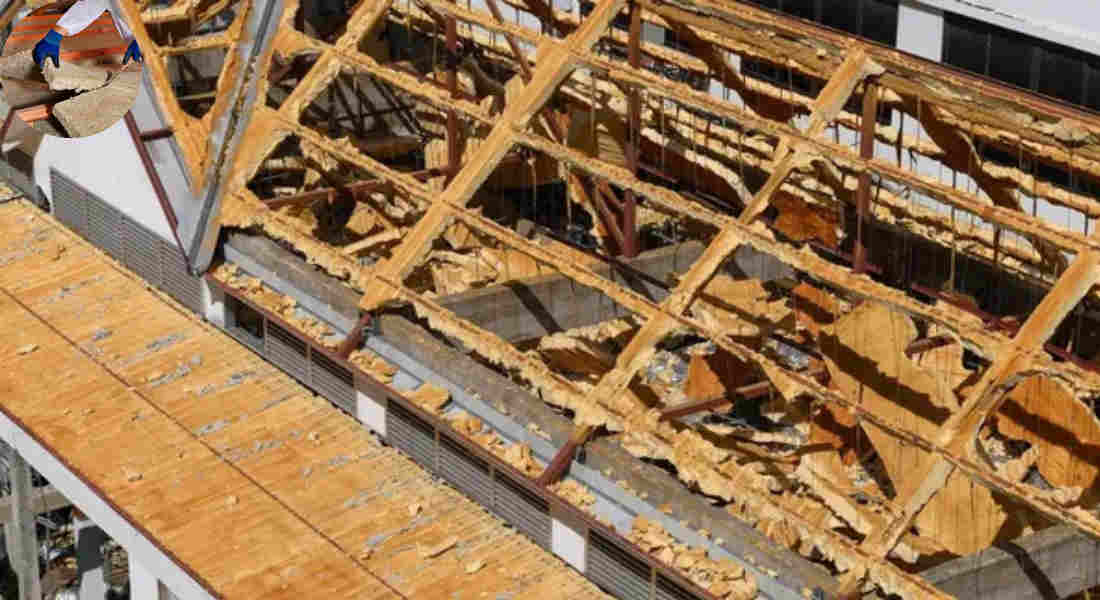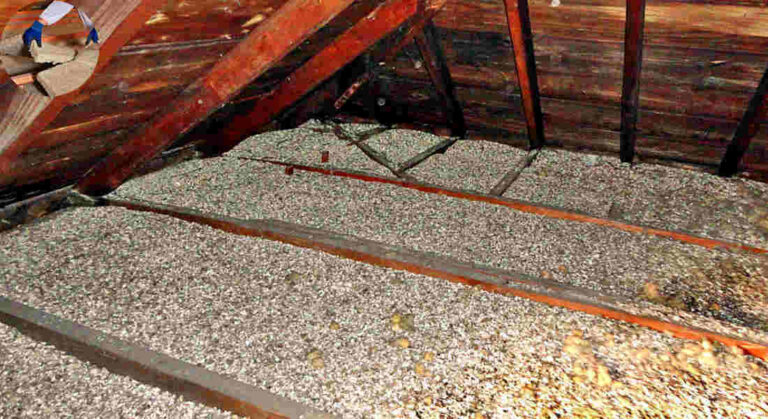When buying a house, there are always countless factors to consider. From location to price to the property’s structural integrity, homeowners often weigh numerous pros and cons before committing to a purchase. However, one factor that usually comes as a surprise is insulation – specifically, vermiculite insulation. So, the question arises: should I buy a house with vermiculite insulation in the UK?
What is Vermiculite Insulation?
What Exactly is Vermiculite?
Vermiculite is a naturally occurring mineral used in various industries for decades due to its excellent thermal and fire-resistant properties. When heated, vermiculite expands to form lightweight, accordion-shaped granules. These granules are often used in gardening, construction, and, most notably, insulation.
How is Vermiculite Used in Insulation?
In the mid-20th century, vermiculite became popular for home insulation, particularly in lofts and walls. Its lightweight nature made it easy to install, and its thermal properties helped regulate indoor temperatures. In its pure form, vermiculite is non-toxic and poses no health risks.
Benefits of Vermiculite Insulation:
- Fire Resistance: Vermiculite does not burn, making it an excellent fireproofing material.
- Thermal Efficiency: It has good insulating properties, which help maintain consistent indoor temperatures.
- Lightweight: Its lightweight nature made it easy to transport and install during construction.
However, not all vermiculite is created equal. The primary issue arises from contamination with asbestos, a hazardous material that can pose serious health risks.
The History of Vermiculite Insulation in the UK
When Was Vermiculite Insulation Popular?
Vermiculite insulation was widely used in homes from the 1940s to the 1980s. During this time, it was considered a cutting-edge material due to its affordability, efficiency, and ease of use. However, its popularity declined as concerns about asbestos contamination came to light.
You may also read (is yelling in your house considered illegal).
The Problem with Contamination
Most of the vermiculite used in insulation was sourced from the Libby mine in Montana, USA. Unfortunately, this mine was contaminated with asbestos, a hazardous material known to cause severe respiratory illnesses. While not all vermiculite contains asbestos, this connection raised alarms worldwide, leading to stricter regulations.
Regulatory Changes in the UK
The UK banned asbestos-containing materials in 1999, but many homes built before this date may still contain vermiculite insulation. Homeowners and buyers must know the potential risks and take the necessary precautions when dealing with older properties.
The Asbestos Contamination Issue
What is Asbestos?
Asbestos is a group of naturally occurring minerals widely used in construction due to their strength, heat resistance, and insulating properties. However, asbestos exposure is linked to severe health conditions, including:
- Asbestosis: A chronic lung disease caused by inhaling asbestos fibres.
- Mesothelioma: A rare and aggressive cancer affecting the lining of the lungs or abdomen.
- Lung Cancer: Asbestos exposure significantly increases the risk of lung cancer.
How Did Vermiculite Become Contaminated?
The contamination occurred because vermiculite from the Libby mine in Montana was often mixed with asbestos. This contaminated vermiculite was distributed globally, including in the UK, where it was used in many homes.
Why is Asbestos in Vermiculite Dangerous?
Asbestos poses a risk when its fibres are disturbed and become airborne. These microscopic fibres can lodge in the respiratory system if inhaled and cause long-term health issues. Activities such as renovating or removing insulation can disturb the vermiculite, releasing asbestos fibres into the air.
Evidence of Health Risks in the UK
Numerous studies and cases have linked asbestos exposure to severe health problems. While not all vermiculite insulation contains asbestos, the risks are significant enough that testing and professional consultation are highly recommended.
UK Regulations on Asbestos
The UK has strict regulations regarding asbestos handling and removal. Homeowners are legally required to hire licensed professionals for asbestos testing and disposal. Ignoring these regulations can result in heavy fines and health risks.
How to Identify Vermiculite Insulation in a Property
Visual Characteristics of Vermiculite Insulation
Vermiculite insulation typically appears as loose, lightweight granules that resemble small, shiny flakes. It is usually grey or brown and can be found in lofts or walls as loose-fill insulation.
You may also read (how to determine if youre overpaying for a house).
Importance of Professional Testing
If you suspect the presence of vermiculite insulation, it’s crucial to have it tested for asbestos contamination. Professionals use specialized equipment and procedures to determine whether the insulation poses a risk.
Why DIY Inspection is Risky
Attempting to inspect or remove vermiculite insulation yourself can release asbestos fibres into the air, putting you and others at risk. Always rely on licensed asbestos professionals for safety.
Checking During Property Purchase
When buying a home, ask the seller or estate agent about the type of insulation used. If vermiculite is present, request documentation of asbestos testing or negotiate for professional testing before completing the purchase.
Should I Buy a House with Vermiculite Insulation in the UK?
Pros and Cons of Buying a House with Vermiculite Insulation
Pros:
- Cost Negotiation: The presence of vermiculite insulation can be a bargaining tool for reducing the property price.
- Remediation Options: The issue can be resolved if tested safely or removed professionally.
Cons:
- Health Risks: Asbestos-contaminated vermiculite poses serious health hazards.
- Financial Costs: Testing and removal can be expensive.
- Mortgage Challenges: Some lenders may hesitate to approve mortgages for properties with asbestos risks.
Key Considerations
Health Risks
The primary concern is the potential presence of asbestos. If the insulation is safe and undisturbed, it may not pose an immediate risk. However, any renovations or disturbances can release hazardous fibres.
Property Value and Mortgage Impact
Homes with asbestos-related issues may have a lower resale value, and mortgage lenders may require testing or removal before approving loans.
Testing and Removal Costs
Professional asbestos testing typically costs between £200-£400. If removal is required, costs can range from £1,000 to £5,000 or more, depending on the job’s complexity.
Negotiation Tips
- Request asbestos testing before purchase.
- Negotiate for the seller to cover testing or removal costs.
- Consult with surveyors and asbestos professionals for expert advice.
Alternatives and Solutions for Vermiculite Insulation
Safe Removal and Disposal
Licensed asbestos professionals can safely remove and dispose of vermiculite insulation, ensuring compliance with UK regulations.
Replacement Insulation Options
After removal, consider modern, environmentally friendly insulation materials such as:
- Spray Foam Insulation
- Fibreglass Insulation
- Rigid Foam Panels
Ongoing Management
If the insulation is tested and asbestos-free, you can leave it undisturbed and follow a management plan. Regular monitoring and professional inspections are recommended.
You may also read (can i legally remove a street sign from my house).

